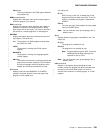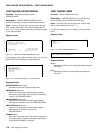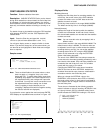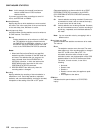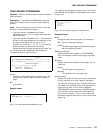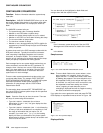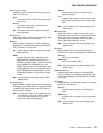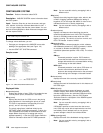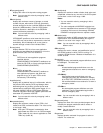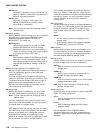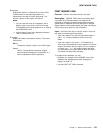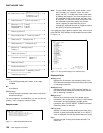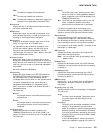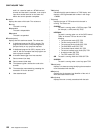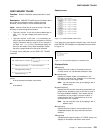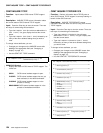CEMT INQUIRE SYSTEM
| DTrprogram(
pgrmid
)
| displays the name of the dynamic routing program.
| Note: You can reset this value by overtyping it with a
| different value.
EDsalimit(
value
)
displays the maximum amount of storage, as a total
number of bytes, within which CICS can dynamically
allocate storage for the four individual DSAs that reside
above the 16MB boundary. (See the
CICS System
Definition Guide
for a description of the EDSALIM
system initialization parameter.)
Note: You can reset this value by overtyping it with a
different value.
If EDSALIMIT specifies a value lower than the current
limit, CICS may not be able to implement the new limit
immediately, but will attempt to do so over time as
dynamic storage is freed in the individual DSAs.
| Forceqr(
value
)
| displays whether CICS is to force user application
| programs that are defined as threadsafe to run on the
| quasi-reentrant (QR) TCB. The values are:
| Force
| CICS forces all user application programs
| specified with the
| CONCURRENCY(THREADSAFE) attribute to run
| under the QR TCB, as if they were specified with
| CONCURRENCY(QUASIRENT).
| Nforce
| CICS is to honor the
| CONCURRENCY(THREADSAFE) attribute on
| user application programs, and allow user
| programs to run on an open TCB to avoid
| unnecessary TCB switching.
| Logdefer(
value
)
| displays the log deferral interval in milliseconds, which is
| the period of time used by CICS Log Manager when
| determining how long to delay a forced journal write
| request before invoking the MVS system logger. It is in
| the range 0-65535. See the
CICS System Definition
|
Guide
for information about the Logdefer parameter and
| associated SIT parameter LGDFINT.
| Note: You can reset this value by overtyping it with a
| different value.
| Maxopentcbs(
value
)
| displays the maximum number of open TCBs, of all
| modes, that CICS is allowed to attach. The value can be
| in the range 1–999.
| Note: Until open TCB support is extended to allow
| task-related user exits to run on CICS-managed
| TCBs (mode L8), this value is applicable to JVM
| TCBs only (mode J8).
MAxtasks(
value
)
displays the maximum number of tasks, both active and
suspended, allowed at any one time in the CICS system.
It must have a value in the range 1–999.
Notes:
1. You can reset this value by overtyping it with a
different value.
2. The value assigned to MAXTASKS might be less
than the requested value, because of CICS storage
constraints. If this occurs, the message CEILING
REACHED is displayed when the request is made.
MRobatch(
value
)
displays the number of MRO requests from connected
regions which are to be batched before this region is
posted. It is a value in the range 1–255.
Note: You can reset this value by overtyping it with a
different value.
OSlevel(
value
)
displays the version, release, and modification level of
the OS/390 product on which CICS is running. For
example, OS/390 Version 2 Release 4 Modification 0 is
shown as 0240.
Progautoctlg
displays whether autoinstalled program definitions are to
be cataloged. The values are:
CTLGAll
All autoinstalled program definitions are to be
cataloged and restored on a warm or emergency
start.
CTLGModify
Autoinstalled program definitions are to be
cataloged only if they are modified (for example,
by a CEMT SET PROGRAM command), so that
the modified definitions are restored on a warm or
emergency restart.
CTLGNone
No autoinstalled program definitions are to be
cataloged. They are autoinstalled again after a
warm or emergency start.
Note: You can reset this value by overtyping it with a
different value.
Progautoexit(
value
)
displays the name of the user-provided program that is
called by the program autoinstall code to select or
modify a model definition.
Note: You can reset this value by overtyping it with a
different value.
Progautoinst
displays whether autoinstall for programs is active or
inactive. The values are:
Chapter 11. Master terminal CEMT 117



